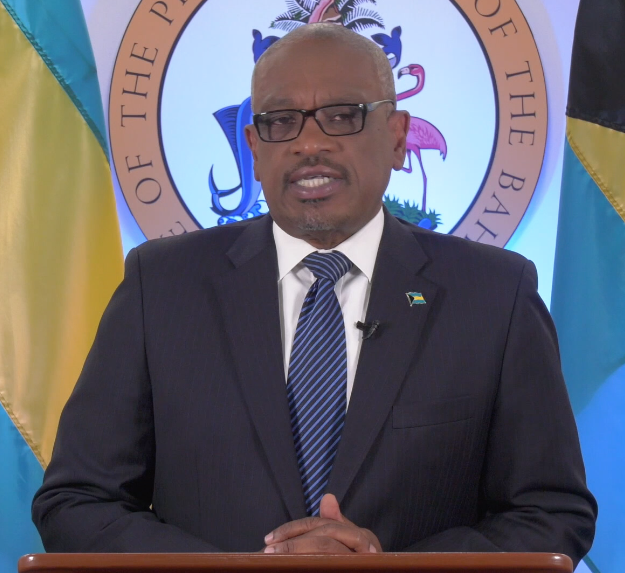Unemployment assistance to continue until the end of Jan.
Food assistance to continue until the end of March
NASSAU, BAHAMAS — The government spent over $177 million through the end of October 2020 on its comprehensive response to the COVID-19 pandemic, Prime Minister Dr Hubert Minnis revealed yesterday.
During his first national address for the year, the prime minister gave an overview of the government’s mitigation efforts throughout the pandemic, insisting that the government’s priority was to “save and to protect lives”.
“To support our fellow countrymen, your government spent over $177 million through the end of October 2020, on our comprehensive COVID-19 response,” he said.
“The closure of much of our economy caused an immediate financial shock to many families.”

Minnis advised that $44.4 million was spent in tax credit and tax deferrals, which funded the payrolls of nearly 7,000 private-sector employees.
He noted that to protect nearly 4,500 jobs in the small business sector, $47.3 million was made available for small business grants and continuity loans through the Access Accelerator Small Business Development Center.
Another $45.5 million was provided in unemployment support through the National Insurance Board (NIB), which included support for self-employed individuals, Bahamians in the hospitality sector and the unemployment extension program.
Between March and October last year, $17.2 million was spent on food support for approximately 100,000 people.
The prime minister advised that the unemployment assistance program will continue until the end of January and the food assistance program will go to the end of March 2021, “to ensure Bahamian families continue to be supported as the economy reopens and Bahamians return to work”.
“While we note the decline in new COVID-19 positive cases since its peak in the summer months, we are also painfully aware that it will take time to rebuild our economy and to restore livelihoods,” he said.
The prime minister indicated that $20 million was spent in contingency funding to boost healthcare facilities, including covering the cost of medical equipment, supplies, quarantine facilities, contact tracing and lab capacity.
On New Providence, $9 million was spent to make major improvements to Princess Margaret Hospital, areas of Sandilands Rehabilitation Center, the Elizabeth Estates Clinic and the South Beach Health Center.
On Grand Bahama, $21 million has been allocated for the phased redevelopment of Rand Memorial Hospital.
As for education, the government, in partnership with the private sector, purchased thousands of tablets and laptops for distribution across the country.
Minnis said in June 2020 the Ministry of Education purchased 5,880 tables, as well as Wi-Fi devices for students on the lunch program, and another 5,000 tablets are being purchased for students in junior high schools.
He noted that all students and teachers on Mayaguana, Acklins, Crooked Island, San Salvador, Rum Cay, Cat Island and Andros were provided with devices for the new school year.






